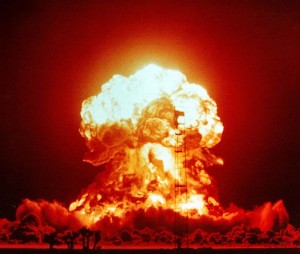On an personal level, I’ve always felt that the sense of justice shapes the way people react to the world on a fundamental level. In the language of Montessori, justice is a fundamental need of humanity. As we mature we begin to see justice from different perspectives, and after going over the history of human rights, I wonder if this applies to societies as well.
Lawrence Kohlberg’s famous theory about the stages of moral development center around the idea of how people see and react to justice and injustice. His first level (pre-conventional) is based on how moral actions affect oneself; if I do this then they will do that right back to me (and I won’t like it). In the second level (conventional) the main concern is how actions affect and are perceived by society; it’s not right to do this because everyone will talk about it (and I don’t like that). The final level (post-conventional), moral judgments are made based on some underlying principles; I should not do this because it will violate someone’s universal human rights (and I would have violated my own principles).
When we talk about the history of human rights, we are discussing how society has gone through these different stages. The first rule of justice, no matter the culture, is some variant of the Golden Rule, an eye for an eye. Eventually we discover the rights of the citizen, then finally the rights of humans. In humans, this moral evolution is innate in potential but not necessarily realized. Similarly is societies, after all, the Greek democracies eventually failed. But there seems to be a general trajectory of history toward post-conventional morality. Robert Wright, in his book “Nonzero” sees this path as the almost inevitable outcome of the beneficial nature of cooperation to human societies.
Of course Nonzero was written in the post-Cold War and pre 9/11 period, when the world was breathing a sigh of relief when the potential for global thermonuclear war seemed to disappear (I also remember David Rudder’s 1990 had a similar theme).
